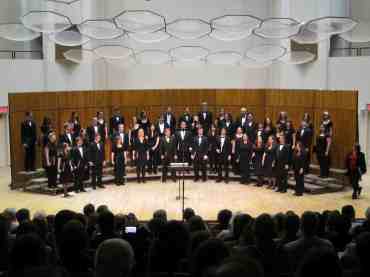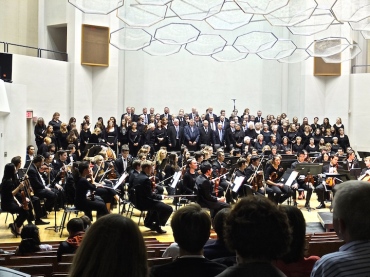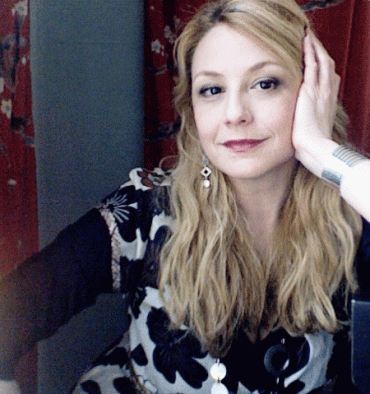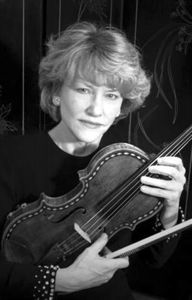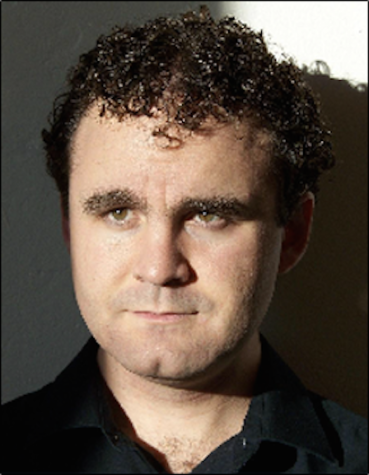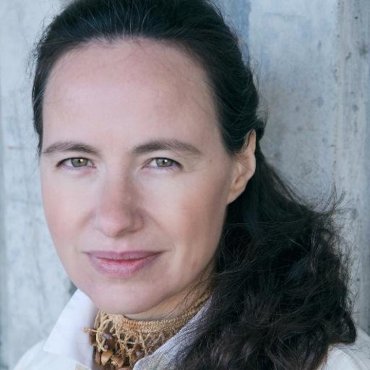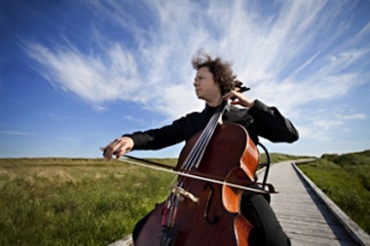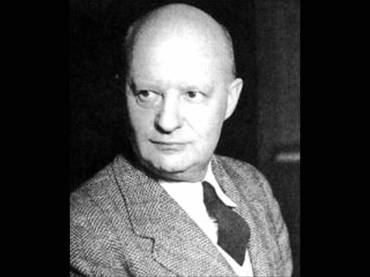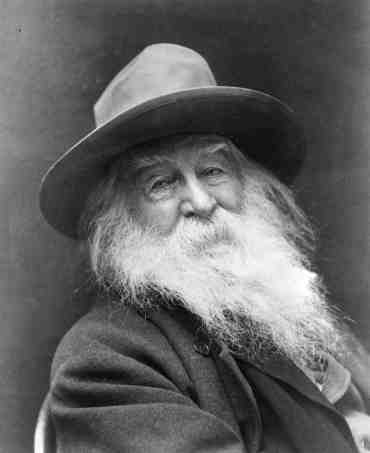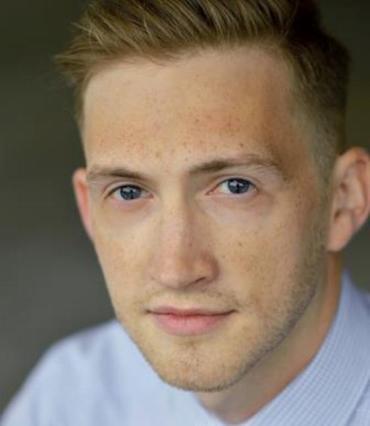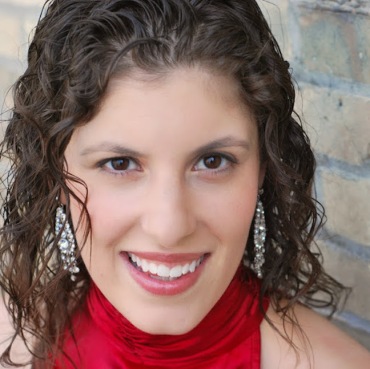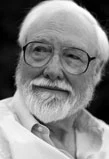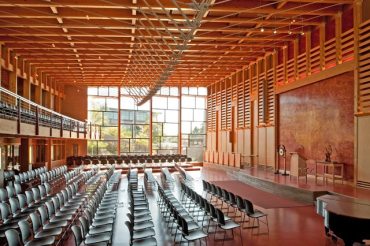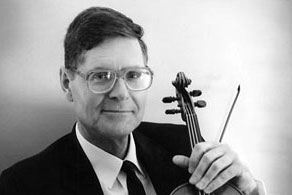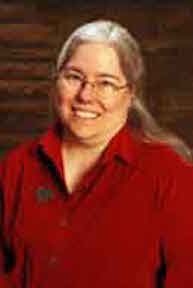The Well-Tempered Ear
Classical music: Here is music that asks for and then grants the peace we need now
2 Comments
PLEASE HELP THE EAR. IF YOU LIKE A CERTAIN BLOG POST, SPREAD THE WORD. FORWARD A LINK TO IT OR, SHARE IT or TAG IT (not just “Like” it) ON FACEBOOK. Performers can use the extra exposure to draw potential audience members to an event. And you might even attract new readers and subscribers to the blog.
By Jacob Stockinger
Is The Ear alone in being reminded of the year 1968 and its various social, political and personal upheavals?
What explains it?
What are the parallels, if any?
Is it the national and international protests against police injustice and racism (below, in a photo by Getty Images)?
Is it the violence and riots that followed the assassination of Martin Luther King Jr. and opposition to the Vietnam War?
Is it the isolation and deaths (below, in a photo by ABC News) brought about by the coronavirus pandemic and the more than 100,000 deaths in just the U.S. from COVID-19?
Whatever you think and whether you agree or not, we all can use some peace.
Here is some music that both asks for peace and grants it.
It is the “Dona Nobis Pacem” (Grant Us Peace) from the “Mass in B Minor” by Johann Sebastian Bach, performed in the YouTube video below by Robert Shaw conducting the Atlanta Symphony Orchestra and Chamber Chorus with soloists.
If there are other pieces of classical music that serve that same purpose and you would like to hear, leave your suggestion in the comment section.
Tags: #ABCNews, #BaroqueMusic, #BlackLivesMatter, #BlogPost, #BlogPosting, #BMinorMass, #ChoralMusic, #COVID-19, #FacebookPost, #FacebookPosting, #GeorgeFloyd, #GettyImages, #GrantUsPeace, #JacobStockinger, #JohannSebastianBach, #MartinLutherKing, #RobertShaw, #SocialDistance, #SocialDistancing, #TheEar, #VietnamWar, #VocalMusic, #YouTubevideo, 1968, ABC News, agree, Arts, assassination, Atlanta Symphony, Bach, Baroque music, big, black, Black Lives Matter, blog, choral music, chorus, Classical music, composer, conduct, conductor, coronavirus, death, destructive, Early music, Facebook, forward, George Floyd, Getty Images, Grant Us Peace, injustice, international, isolation, Jacob Stockinger, Johann Sebastian Bach, justice, like, link, Martin Luther King, mass, Mass in B Minor, MLK, Music, national, news, Orchestra, pandemic, parallels, peace, personal, photo, police, political, post, posting, protest, remind, riot, Robert Shaw, share, social, tag, Television, The Ear, think, TV, United States, upheaval, Vietnam War, violent, vocal music, war, YouTube
Classical music: The UW Concert Choir, Choral Union and Symphony Orchestra will perform world premieres, local premieres and new music in three concerts this weekend
1 Comment
By Jacob Stockinger
The Ear has received the following messages from UW composer Laura Schwendinger and from Beverly Taylor, the director of choral activities at the University of Wisconsin-Madison School of Music who is also the assistant conductor and chorus director of the Madison Symphony Orchestra:
Writes conductor Beverly Taylor: This is a busy and musically fascinating weekend for me coming up.
On Friday night at 8 p.m. in Mills Hall, there is a special concert by the Concert Choir (below) on the subject of Art Born of Tragedy, with the acclaimed guest cellist Matt Haimovitz.
Tickets are $15, $5 for students. For more information about tickets as well as the performers and the program, go to:
http://www.music.wisc.edu/event/uw-concert-choir-4-matt-haimovitz/
Then in Mills Hall at 8 p.m. on Saturday night and at 7:30 p.m. on Sunday night, there are two performances of When Lilacs Last in the Dooryard Bloomed by the 20th-century composer Paul Hindemith by the UW Choral Union and the UW Symphony Orchestra (below). It is a work that to my knowledge has never been performed in Madison.
Tickets are $15, $8 for students. For more information about obtaining tickets and about the concert, visit:
http://www.music.wisc.edu/event/uw-choral-union-uw-symphony-orchestra/
Here is more information about the events:
CONCERT CHOIR
The Concert Choir performance explores in music of several centuries the theme of “Art Born of Tragedy” — how outside events can be the spark that causes the creation of works of substance that range from the gentle and comforting to rage and despair.
We will sing music from the Renaissance: part of the Thomas Tallis’ “Lamentations of Jeremiah (on the ancient destruction of Jerusalem),” and a John Wilbye madrigal “Draw on Sweet Night for a Broken Heart.”
We will present three works from modern composers: one is a world premiere by the prize-winning composer Laura Schwendinger (below top), my colleague at the UW-Madison, for viola — played by Sally Chisholm (below bottom) of the UW Pro Arte Quartet — and wordless chorus. It is called “For Paris” in memory of those killed in the Paris terrorist bombings of 2015.
(Adds composer Laura Schwendinger: “The viola starts this short work by referencing only for a moment the merest idea of a ‘musette song,’ one that might be heard on an evening in a Paris cafe. The choir enters with a simple refrain that repeats again and again, each time with a little more material, as an unanswered question of sorts. Each time the viola reenters the texture, the music becomes more pressing in a poignant manner, until it arrives in its highest register, only to resolve with the choir as it quietly acquiesces in the knowledge that the answer may not be known.”)
We will present a short “O vos omnes” (O you who pass by) written by Pennsylvania composer Joseph Gregorio (below), composed in memory of a Chinese girl hit by a car and left to die.
The third piece is a reprise of “Après moi, le deluge” by Luna Pearl Woolf (below top), which we premiered and recorded 11 years ago. We are lucky to have back the wonderful internationally known cellist Matt Haimovitz (below bottom), who premiered this work with it. The text, written by poet Eleanor Wilner, mixes the Noah story with the Hurricane Katrina disaster.
The term “Après moi, le deluge” is a term attributed to Louis XV or his mistress Madame Pompadour, and means “after me the flood” — referring either to the chaos after his reign, or that what happens afterword bears no importance for him.
The work has four different moods like a symphony — with strong themes at the start and cries for help, followed by the slow movement despair, a scherzo-like depiction of havoc, and a final movement that is like a New Orleans funeral, upbeat and Dixieland.
Throughout the program we also present spirituals that depict loneliness or salvation from trouble.
UW CHORAL UNION
In certain ways, When Lilacs Last in the Dooryard Bloomed resembles the Concert Choir concert in that it contains a number of moods and styles as well, under a dark title. The subtitle of the work is “a Requiem for Those We Love.”
It was commissioned by the great choral and orchestral conductor Robert Shaw as a tribute to President Franklin Delano Roosevelt on his death and the train ride that carried him from Warm Springs, Georgia, to Washington, D.C.
The text that Paul Hindemith (below top) chose is by Walt Whitman (below bottom), who wrote his poem on the death of Abraham Lincoln, and the funeral train from Washington, D.C., to Springfield, Illinois.
Whitman’s grief is combined with pride and joy in the countryside that the train traverses, and his feelings find an outlet in the thrush that sings out its song. His sense of a sustaining universe is a contrast to his depiction of the despair and ravages of the Civil War.
Hindemith’s calling the work a “Requiem for Those We Love,” puts it, like the Brahms’ “German” Requiem, into a class of non-liturgical requiems — that is, the texts are not those that are part of the Catholic Mass for the Dead, but are other selected texts of joy or remembrance.
Hindemith’s style can loosely be described as tonal that veers away into dissonance and returns again to the home key. The Prelude and opening movement are dark; the solo songs of baritone (James Held, below top) and mezzo-soprano (Jennifer D’Agostino, below bottom) are marvelous; the fugue on the glories of America is glorious and other sections are soft and tender. (NOTE: You can hear the orchestral prelude of the work, with composer Paul Hindemith conducting the New York Philharmonic, in the YouTube video at the bottom.)
The work is hard for both chorus and orchestra, but well worth the effort. The piece is about 80 minutes long and will be performed without interruption. It’s a work I’ve always wanted to do, having heard it performed at Tanglewood many years ago. I’m delighted to have the chance now.
Tags: 20th-century, Art, Arts, auto, baritone, Beverly Taylor, born, cafe, car, Catholic, Chamber music, chaos, China, Chinese, Choir, choral music, Choral Union, chorus, Civil War, Classical music, comfort, composer, Concert Choir, conductor, D.C., dead, despair, dissonance, Dixieland, Early music, Eleanor Wilner, FDR, Franklin Delano Roosevelt, fugue, funeral, gentle, Georgia, grief, heart, Hurricane, Hurricane Katrina, ILLINOIS, Jacob Stockinger, James Held, Jennifer D'Agostino, Jeremiah, Jerusalem, John Wilbye, Joseph Gregorio, Joy, Kartrina, lamentation, Laura Schwendinger, Lincoln, liturgical, liturgical music, Louis XV, Love, Madame Pompadour, Madison, Madison Symphony Orchestra, madrigal, mass, Matt Haimovitz, Mezzo-soprano, musette, Music, New Music, New Orleans, New York Philharmonic, Orchestra, Paris, Paul Hindemith, Pennsylvania, poet, Prelude, premiere, President, Pro Arte Quartet, rage, ravages, reign, remembrance, Renaissance, Requiem, Requiem Mass, Robert Shaw, Scherzo, song, Springfield, symphony, symphony orchestra, Tanglewood, Tanglewood Festival, terror, terrorist, Thomas Tallis, tonal, tragedy, train, United States, universe, University of Wisconsin-Madison School of Music, University of Wisconsin–Madison, UW, Viola, Violin, vocal music, Walt Whitman, Warm Springs, Washington, When Lilacs Last in the Dooryard Bloomed, Wisconsin, world premiere, YouTube
Classical music: A new recording of Rachmaninoff’s “All-Night Vigil” captures the Russian qualities the composer prized in this sacred music
Leave a Comment
By Jacob Stockinger
Here is a special posting, a record review written by frequent guest critic and writer for this blog, John W. Barker. Barker (below) is an emeritus professor of Medieval history at the University of Wisconsin-Madison. He also is a well-known classical music critic who writes for Isthmus and the American Record Guide, and who hosts an early music show once a month on Sunday morning on WORT FM 89.9 FM. For years, he served on the Board of Advisors for the Madison Early Music Festival and frequently gives pre-concert lectures in Madison.
By John W. Barker
For reasons, astronomical and cultural, the Western and Eastern Orthodox celebrations of Easter are frequently held at separate dates. But this year they coincide (on this coming Sunday, April 16). That gives good reason to direct attention beyond familiar Western Easter music and instead to that of Eastern Orthodoxy.
A new recording of one of the landmarks of Russian Orthodox music provides further stimulus to this.
Russian Orthodox practice did not encourage extensive new compositions, but stressed elaborate liturgical rituals built around the heritage of medieval monophonic chant, while benefiting from the fabulous style of Russian choral singing—those low basses (“octavists”) in particular.
Most composers who worked to enrich the liturgical literature were professional church musicians, but a number of “secular” Russian composers also made contributions. Notable among them were Nikolai Rimsky-Korsakov, Peter Tchaikovsky and Sergei Rachmaninoff (below).
It is the last of those three who has given us the music at hand, a truly memorable sacred creation. The work is his Op. 37, entitled “The Most Important Hymns of the ‘All-Night Vigil,” and commonly called “The All-Night Vigil” (Vsenoshchnogo Bdeniya) or else, more simplistically the “Vespers.”
It was composed during the early years of World War I, which was to bring about the collapse of the Russia that Rachmaninoff knew. It was performed in 1915, and two years later, amid the upheavals of the two Revolutions, the composer left his native land for good.
Rachmaninoff prized his Op. 37 above his other works; it was his proclamation of Russian identity, and after it he wrote no more sacred music. He even hoped that one section of it could be sung at his funeral. (A moving sample can be heard in the YouTube video at the bottom.)
The Orthodox Christian celebration of the Resurrection places emphasis on the Saturday night offices of Vespers and Matins, in a prolonged and elaborate ritual. (This Vigil array can also be used for other significant feasts beyond Easter.)
Given the lengths, Rachmaninoff chose to set his selection of “the most important hymns” for his Op. 37, for a total of 15 sections. He did follow working practice by building his settings on or around traditional chant melodies. He expected that individual sections might have liturgical usage; but he understood that the totality was a grand concert work.
The Rachmaninoff All-Night Vigil, or “Vespers,” has been recorded many times, often by Russian choirs, which have the musical and liturgical style in their blood. But non-Russian groups and directors have also come to recognize the transcendent beauty of this masterwork.
Noteworthy among those was Robert Shaw, the great American choral master whose recording (on the Telarc label) has been acclaimed by his admirers for its predictably superb choral sound. But Shaw and his singers lack Russian sound or spiritual sensitivity.
Other American performers have joined in: the broadly paced recording with Charles Bruffy and his Phoenix and Kansas City choirs (for Chandos) is notable. Paul Hillier’s recording (for Harmonia Mundi) with the Estonian Philharmonic Chamber Choir has earned great respect.
I have just been taken by the brand new release (below) from Paraclete Recordings of Massachusetts, with the Gloria Dei Cantores and members of three other choirs under the direction of Peter Jermihov.
They number 77 singers in all and, as recorded in a church setting, they make a sumptuous sound. Their emphasis is less on clarifying individual voice parts and more on relishing the rich blends that make up the total texture.
While treating the work as a grand concert piece, this performance goes beyond most others by including intonations by clerical celebrants, recalling the liturgical context that was always in the composer’s mind.
One of the striking features of this release is its thick album booklet. This is not only richly illustrated but contains an unusually penetrating background essay. Further, in presenting the Russian texts (in Cyrillic and transliteration) with English translations, it also gives useful comments section by section, for the fullest understanding of the liturgical contexts.
This is a noteworthy addition to the crowded recording picture for this sumptuous and deeply moving sacred music.
Tags: All-Night Vigil, American, American Record Guide, Arts, astronomy, bass, booklet, Chandos, chant, Charles Bruffy, choral music, Christian, Christianity, church, Classical music, Compact Disc, Concert, culture, Cyrillic, Early music, Easter, Eastern, Eastern Orthodox Church, English, essay, Estonia, funeral, Gloria Dei Cantores, Harmonia Mundi, History, Isthmus, Jacob Stockinger, John W. Barker, Kansas City, lecture, liturgy, Madison, Massachusetts, matins, Medieval, monophonic, Music, Nikolai Rimsky-Korsakov, octavist, Orthodox, Paraclete Recordings, Paul Hillier, Peter Tchaikovsky, Phoenix, professor, Rachmaninoff, recording, Resurrection, revolution, ritual, Robert Shaw, Russia, Russian Orthodox, Russian Revolution, secular, singer, Tchaikovsky, Telarc, United States, University of Wisconsin-Madison School of Music, University of Wisconsin–Madison, vesper, vespers, vocal music, Western, Wisconsin, World War I, WORT-FM 89.9, YouTube
Classical music: The Wisconsin Chamber Choir performs a varied holiday concert of all-classical music this Saturday night
Leave a Comment
By Jacob Stockinger
The Ear has received the following notice to post:
The Wisconsin Chamber Choir (below) will perform “O Wondrous Mystery” this coming Saturday night, Dec. 17 at 7:30 p.m. in the Bethel Lutheran Church, 312 Wisconsin Ave., in Madison.
Tickets are $15 (for students, $10) in advance; $20 ($12) at the door. Advance tickets are available from www.wisconsinchamberchoir.org, via Brown Paper Tickets, or at Orange Tree Imports and Willy Street Coop (East, West and North locations).
Explore the magic and mystery of the holiday season with the Wisconsin Chamber Choir, whose program highlights the beloved Latin chant ”O magnum mysterium” in musical settings by Tomas Luís de Victoria and Francis Poulenc. (You can hear Poulenc’s setting, conducted by the legendary Robert Shaw, in the YouTube video at the bottom.)
Rounding out the performance are the remainder of Poulenc’s Four Christmas Motets along with seasonal works spanning five centuries by William Byrd, Heinrich Schütz, Johannes Brahms, Herbert Howells and Bob Chilcott, plus the world premiere of “Methinks I See a Heavenly Host” by Peter Bloesch (below).
The 50-voice choir will be joined by organist Mark Brampton Smith (below top) of Grace Episcopal Church, and Madison Symphony Orchestra trombonist and program annotator J. Michael Allsen (below bottom, in a photo by Katrin Talbot), who will accompany the Schütz selections on the sackbut, the Renaissance ancestor of the trombone.
Founded in 1998, the Madison-based Wisconsin Chamber Choir has established a reputation for excellence in the performance of oratorios by Bach, Mozart, and Brahms; a cappella masterworks from six centuries; and world premieres.
Robert Gehrenbeck (below), who heads the choral program at the UW-Whitewater, is the Wisconsin Chamber Choir’s artistic director.
Tags: a cappella, ancestor, Artistic director, Arts, Bach, Baroque, Bethel Lutheran Church, Bob Chilcott, Brahms, Byrd, chant, Choir, choral music, chorus, Christmas, church, Classical music, composer, Early music, Grace Episcopal Church, Heinrich Schütz, Herbert Howells, Holiday, Jacob Stockinger, Johannes Brahms, Latin, Madison, Madison Symphony Orchestra, motet, Mozart, Music, mystery, O magnum mysterium, oratorio, Orchestra, organ, Peter Bloesch, Poulenc, program notes, Renaissance, Robert Gehrenbeck, Robert Shaw, sackbut, Schütz, Singing, Tomas Luis de Victoria, Trombone, United States, University of Wisconsin-Madison School of Music, University of Wisconsin–Madison, UW-Whitewater, vocal music, Wisconsin, Wisconsin Chamber Choir, wondrous, world premiere, YouTube
Classical music: French composer Maurice Durufle’s quietly glorious but rarely performed Requiem will be sung for FREE twice this Sunday, March 29, at the First Unitarian Society of Madison. Plus, the UW Hunt Quartet performs a FREE concert of Mozart, Janacek and Mendelssohn on Thursday night at 6:30 in Morphy Hall.
Leave a Comment
ALERT: This Thursday night at 6:30 p.m. in Morphy Hall, the Hunt Quartet will perform three great string quartets: the String Quartet No. 23 in F Major, K. 590, by Wolfgang Amadeus Mozart; the String Quartet No. 1 “Kreutzer Sonata” by Leos Janacek; and the String Quartet No. 2 in A minor, Op. 13, by Felix Mendelssohn.
The quartet is made up of four graduate students (below) at the UW-Madison School of Music. Here is a link to the event with impressive biographies and other information:
http://www.music.wisc.edu/events/hunt-quartet-recital/
By Jacob Stockinger
Our friend Dan Broner, the music director of the First Unitarian Society of Madison, has sent the following note to The Ear:
On Sunday, March 29, at 10 a.m. and 3 p.m. the Society Choir of the First Unitarian Society of Madison will be joined by guest singers and instrumentalists in two performances of a masterpiece by French composer Maurice Durufle (below): his Requiem, Op. 9.
Both performances will take place in the modern Atrium Auditorium (below, in a photo by Zane Williams).
Maurice Durufle (1902-1986) was a celebrated French organist and composer. He studied at the Paris Conservatoire with the two most important French organist-composers of the day, Charles Tournemire and Louis Vierne, and he surpassed them both.
Durufle (below) won every major prize – in organ, harmony, accompaniment, counterpoint and fugue, and composition. In 1939 he gave the world premiere of Francis Poulenc’s Organ Concerto and in the 1940s he was named Professor of Harmony of the Conservatoire. It was his exceptional penchant for self-criticism, however, that led to Durufle publishing only 13 works: six organ pieces, two works for orchestra, a chamber piece, and four choral compositions.
He kept re-writing and revising his compositions for years after they were completed. As a result Durufle is a relatively unknown composer to the general public, but is admired by composers and singers for the impeccable craftsmanship and sublime beauty of his work.
The Requiem for choir, soloists, orchestra and organ was completed in 1947 and is based on Gregorian chants from the Roman Catholic Mass for the Dead. Stylistically it is influenced by the 20th-century organ music of Tournemire and Vierne, the Impressionist school of Claude Debussy and Maurice Ravel, the elegant Romanticism of Gabriel Faure, Renaissance polyphony and above all Gregorian chant. These elements form a tapestry held together by Durufle’s command of harmony and structure.
Durufle wrote three different accompaniments for the work: the original for large orchestra, a version for organ accompaniment, and one for organ and chamber orchestra. It is this last version that we will be using for our performances. (Below is a photo of Dan Broner conducting the choir. At bottom, you can hear the fourth movement, the Sanctus, as performed by Robert Shaw and the Atlantic Symphony Orchestra and Chorus. Sorry, but I don’t know why there is no video to accompany the audio.)
The concert will also introduce the new Allen digital organ gifted by William Wartmann (below) in memory and honor of his late wife, Joyce Wartmann, and her lifelong friendship with retired FUS Assistant Music Director and Organist, Eva Wright.
Joining the Society Choir will be guest singers from the Meeting House Chorus and community; baritone Paul Rowe (below top) and soprano Heather Thorpe (below bottom), who directs the FUS Children’s Choir.
Retired UW-Madison professor and Concertmaster of the Madison Symphony, Tyrone Greive (below top, in a photo by Katrin Talbot), will lead the string section, which will be joined by three trumpeters, timpani and harp, all conducted by FUS music director Dan Broner. Linda Warren (below bottom) will be the harpist and the guest organist will be Sheri Masiakowski, a doctoral student of UW organist, John Chappell Stowe.
I hope you will be able to join us on March 29 to experience some of the most beautiful music ever penned for choir and orchestra.
Tags: accompaniment, Arts, Atlanta, Atlanta Symphony Chorus, Atlanta Symphony Orchestra, baritone, Baroque, Baroque music, Chamber music, chant, Choir, choral music, Classical music, Composition, concertmaster, concerto, conductor, counterpoint, Debussy, Faure, Felix Mendelssohn, First Unitarian Society of Madison, fugue, Gabriel Fauré, Gregorian chant, harmony, Impressionism, Jacob Stockinger, Kreutzer Sonata, Leos Janacek, Madison, Madison Symphony Orchestra, mass, Mass (liturgy), Maurice Durufle, Middle Ages, Music, Music director, Orchestra, organ, Paris, Paris Conservatory, Paul Rowe, polyphone, polyphony, Poulenc, professor, Ravel, Renaissance, Requiem, Robert Shaw, Roman Catholic, Romantic, Romanticism, Sanctus, soprano, String quartet, strings, structure, timpani, Trumpet, tympani, University of Wisconsin-Madison School of Music, University of Wisconsin–Madison, Vierne, Violin, vocal music, William Wartmann, Wisconsin, Wolfgang Amadeus Mozart, YouTube
- May 2024
- April 2024
- March 2024
- February 2024
- January 2024
- December 2023
- November 2023
- October 2023
- September 2023
- August 2023
- July 2023
- June 2023
- May 2023
- April 2023
- March 2023
- February 2023
- January 2023
- December 2022
- October 2022
- September 2022
- June 2022
- May 2022
- April 2022
- March 2022
- July 2021
- June 2021
- May 2021
- April 2021
- March 2021
- February 2021
- January 2021
- December 2020
- November 2020
- October 2020
- September 2020
- August 2020
- July 2020
- June 2020
- May 2020
- April 2020
- March 2020
- February 2020
- January 2020
- December 2019
- November 2019
- October 2019
- September 2019
- August 2019
- July 2019
- June 2019
- May 2019
- April 2019
- March 2019
- February 2019
- January 2019
- December 2018
- November 2018
- October 2018
- September 2018
- August 2018
- July 2018
- June 2018
- May 2018
- April 2018
- March 2018
- February 2018
- January 2018
- December 2017
- November 2017
- October 2017
- September 2017
- August 2017
- July 2017
- June 2017
- May 2017
- April 2017
- March 2017
- February 2017
- January 2017
- December 2016
- November 2016
- October 2016
- September 2016
- August 2016
- July 2016
- June 2016
- May 2016
- April 2016
- March 2016
- February 2016
- January 2016
- December 2015
- November 2015
- October 2015
- September 2015
- August 2015
- July 2015
- June 2015
- May 2015
- April 2015
- March 2015
- February 2015
- January 2015
- December 2014
- November 2014
- October 2014
- September 2014
- August 2014
- July 2014
- June 2014
- May 2014
- April 2014
- March 2014
- February 2014
- January 2014
- December 2013
- November 2013
- October 2013
- September 2013
- August 2013
- July 2013
- June 2013
- May 2013
- April 2013
- March 2013
- February 2013
- January 2013
- December 2012
- November 2012
- October 2012
- September 2012
- August 2012
- July 2012
- June 2012
- May 2012
- April 2012
- March 2012
- February 2012
- January 2012
- December 2011
- November 2011
- October 2011
- September 2011
- August 2011
- July 2011
- June 2011
- May 2011
- April 2011
- March 2011
- February 2011
- January 2011
- December 2010
- November 2010
- October 2010
- September 2010
- August 2010
- July 2010
- June 2010
- May 2010
- April 2010
- March 2010
- February 2010
- January 2010
- December 2009
- November 2009
- October 2009
- September 2009
- August 2009
Archives
- 2,491,516 hits
Blog Stats
Recent Comments
| Brian Jefferies on Classical music: A major reass… | |
| welltemperedear on What made Beethoven sick and… | |
| rlhess5d5b7e5dff on What made Beethoven sick and… | |
| welltemperedear on Beethoven’s Ninth turns 200… | |
| Robert Graebner on Beethoven’s Ninth turns 200… |
Tags
#BlogPost #BlogPosting #ChamberMusic #FacebookPost #FacebookPosting #MeadWitterSchoolofMusic #TheEar #UniversityofWisconsin-Madison #YouTubevideo Arts audience Bach Baroque Beethoven blog Cello Chamber music choral music Classical music Compact Disc composer Concert concerto conductor Early music Facebook forward Franz Schubert George Frideric Handel Jacob Stockinger Johannes Brahms Johann Sebastian Bach John DeMain like link Ludwig van Beethoven Madison Madison Opera Madison Symphony Orchestra Mead Witter School of Music Mozart Music New Music New York City NPR opera Orchestra Overture Center performer Pianist Piano post posting program share singer Sonata song soprano String quartet Student symphony tag The Ear United States University of Wisconsin-Madison School of Music University of Wisconsin–Madison Viola Violin vocal music Wisconsin Wisconsin Chamber Orchestra wisconsin public radio Wolfgang Amadeus Mozart YouTube

